Facilities
Main building
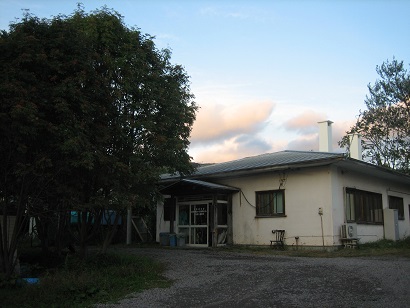 @This building was built at 1966. There are office, room for biochemical
experiments, and library in it. Half of this building is breeding
room to incubate fertilized eggs and to rear young fish.
@This building was built at 1966. There are office, room for biochemical
experiments, and library in it. Half of this building is breeding
room to incubate fertilized eggs and to rear young fish.
Office
@All staffs and students work in this room.Room for biochemical experiments
Thermal cycler, FCM (flow-cytometer), incubator, electrophoresis, absorption-photometer, clean-bench and others are available.
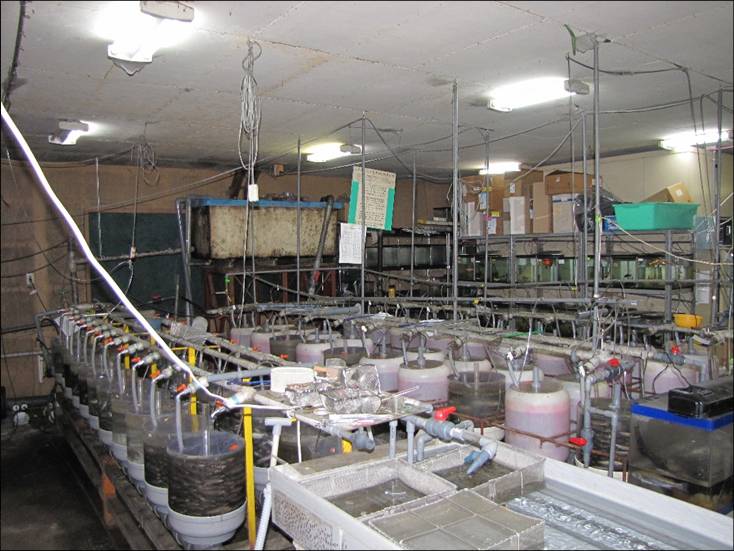
Breeding room using well water
@In this room, fertilized eggs and young fish were reared using well water. Hatching tanks incubate fertilized eggs. Young fish were kept in high-density aquariums.Breeding room at high temperature
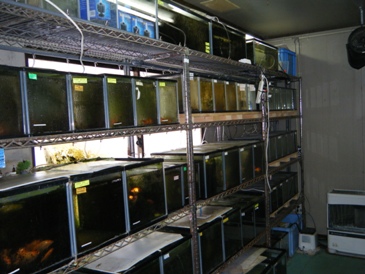
Breeding system for small-sized fish
@Small-sized cyprinid species, such as Danioninae fish, are reared in
aquarium system. Temperature-
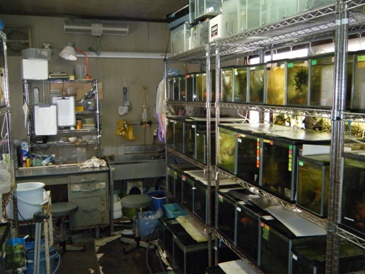
Breeding aquariums for medium-sized fish
@Medium-sized cyprinid species, such as goldfish, and artificially manipulated fish are reared in aquariums. Aquariums are filtrated independently.Outdoor ponds
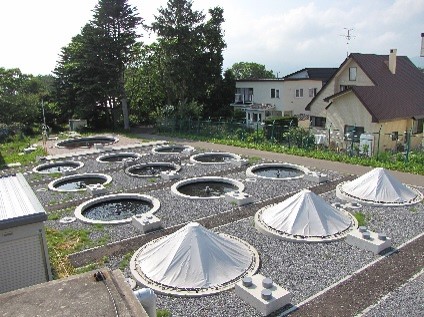
Circular ponds
@Parent fish in Salmonid species are reared in the circular ponds supplied with river water. The water flows in a circular direction and is removed from the tank center, which prevents the accumulation of debris. This flow is also thought to reduce contact between individuals, activate their immune systems and improve their flesh quality. Natural water temperature induces maturation almost naturally, resulting that the eggs with good developmental quality are obtained around optimum spawning season.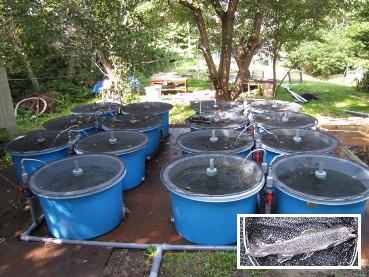
Circular aquariums
@Young fish in Salmonid species are moved to the outdoor circular aquariums supplied with well water. After 2 to 3 years, they grow pre-matured fish to 30 cm in body length.Circular assembly-type aquariums
Matured and pre-matured sturgeons are aqua-cultured in circular assembly-type aquariums supplied with river water. These are provided to users as rental aquariums as necessary.
Greenhouses
@Fertilized eggs in sturgeon are cultivated in special chambers supplied
with well water in greenhouses. Hatched fingerlings and small juveniles
are also reared in rectangular tanks supplied with temperature-controlled
well water.
Hatching room
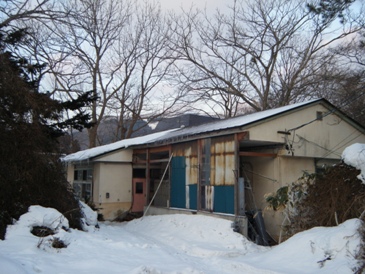 @This is the oldest building in this Station constructed at 1959.
At that time, there were three rooms for breeding, student training and
feed preparation. In breeding room, propagation of Salvelinus species
was performed. Now, research experiments, such as manipulation of
embryos and histological experiment, are performed in the student training
and feed-preparation spaces after the several modifications of room.
@This is the oldest building in this Station constructed at 1959.
At that time, there were three rooms for breeding, student training and
feed preparation. In breeding room, propagation of Salvelinus species
was performed. Now, research experiments, such as manipulation of
embryos and histological experiment, are performed in the student training
and feed-preparation spaces after the several modifications of room.
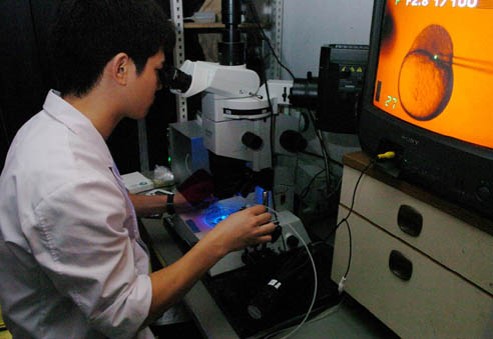
Manipulation room
@French-press for chromosome set manipulation, and micromanipulator and injector are prepared in this room. As several types of microscopes with optical devices are also prepared, observation and optical analysis are easily performed after embryonic manipulation. Histological experiments are also available in this room.Breeding room
@In this room, river water is available for breeding. Young fish in Salmonid species are reared under the prolonged day light condition. Parent goldfish are also reared in temperature-controlled aquariums. Large number of parent fish stock allows to successive collection of matured eggs.
oi[Xy[X
Nanae Fresh-Water Station
2-9-1, Sakuracho, Nanae town Kameda-gun, Hokkaido, 041-1105, Japan
TEL 0138-65-2344
FAX 0138-65-2239